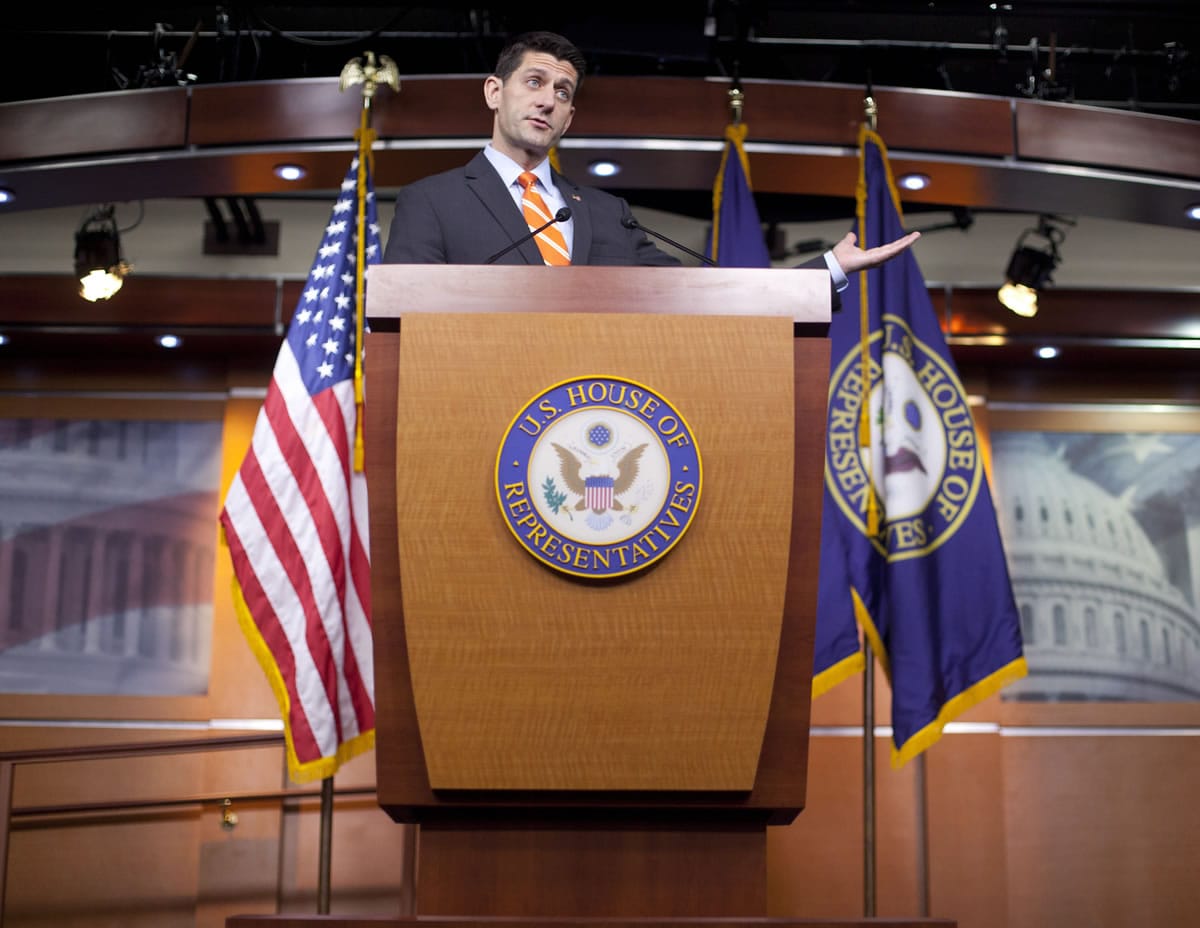WASHINGTON — Despite years of warnings that the nation’s roads, bridges and transit systems are falling apart and will bring nightmarish congestion, the House on Thursday passed a six-year transportation bill that maintains the spending status quo.
The bill, approved on a bipartisan vote of 363-64, authorizes $325 billion in spending through the 2021 federal budget year. But it provides money for only the first three years because lawmakers couldn’t agree on a way to pay for it all. The measure would continue current rates of spending, adjusted for inflation.
The bill is similar to a transportation bill passed by the Senate in July. Congressional leaders say they hope to quickly work out the differences between the two measures and send President Barack Obama a final bill before Thanksgiving. They also said they hope to find the money to pay for the last three years of the bill.
“At the funding levels proposed in both the House and Senate bills, the result will be more traffic,” said Transportation Secretary Anthony Foxx. He has said $400 billion over six years is the minimum needed to prevent matters from worsening.
Most lawmakers lauded the bill as a major accomplishment because it would assure states and localities that they can count on federal highway and transit aid for at least three years. It’s hard to plan major construction projects when availability of federal aid is in doubt. The House and Senate bills are the first long-term funding bills in about a decade.
Since 2008, Congress has kept the federal Highway Trust Fund teetering on the edge of bankruptcy, unwilling to raise the federal 18.4 cents-a-gallon gasoline and 24.4-cent diesel taxes. The fuel taxes, the trust fund’s main source of revenue, were last raised in 1993. Transportation aid has continued through dozens of short-term extensions and transfers of money from the general treasury to make up the gap between revenues and spending.
The House bill is filled with changes to transportation policy that reflect the small-government, pro-business philosophy of the chamber’s GOP majority. But it is also a compromise that Transportation and Infrastructure Committee Chairman Bill Shuster, R-Pa., spent months negotiating with Rep. Peter DeFazio of Oregon, the panel’s top Democrat. As a result, the bill also includes many provisions sought by Democrats or supported by lawmakers from both parties, and avoids some of the most divisive proposals.
The bill will give the nation’s infrastructure and its economy “a much-needed shot in the arm,” Shuster said.
One change that gained wide support would direct $4.5 billion a year to interstate highways and other roads designated as freight corridors to increase capacity and relieve bottlenecks, and a grant program of more than $700 million a year for nationally significant highway and freight projects.
The measure was the first major bill on the House floor since Rep. Paul Ryan became speaker, and it reflected the Wisconsin Republican’s promise to give rank-and-file lawmakers greater clout in shaping legislation — something they complained they lacked under Speaker John Boehner, R-Ohio, who resigned under fire last week.
More than 100 amendments were debated on the House floor over two days. But scores of other amendments were blocked from consideration by GOP leaders, including a proposal by Rep. Earl Blumenauer, D-Ore., to raise the gas tax, and another by Rep. John Delaney, D-Md., to tax profits U.S. corporations park overseas and use that tax to pay for transportation programs.
The Obama administration has offered a similar tax proposal, and Ryan has backed the general concept. But negotiations between Ryan and Charles Schumer of New York, the No. 3 Senate Democratic leader, failed to produce an agreement. Such a one-time cash infusion also wouldn’t solve the trust fund’s long-term problems.



